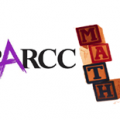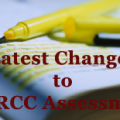
Let’s face it. Not everyone is a fan of standardized testing. It stresses out students, parents and even teachers. And very often, it ends up driving the curriculum and teaching of a classroom. We’ve all heard of teaching to the test, and I don’t think any of us can deny it occasionally happens.
So, why test then?
First, testing is not a new concept. Assessing students in one form or another has been the preferred method of understanding student learning since Socrates’ time. Although his testing method was very informal conversations, a significant difference than today, he still recognized the necessity of checking how well his students were learning the material. As teaching methods and content changed through the centuries, along with the number and type of students, so to the assessment methods have also had to change. From the informal testing of Socrates, to more formal testing such spelling and math tests as called for by Horace Mann, to the creation of what we know today as the College Board in 1900, the creation of more in-depth standardized testing seemed almost inevitable.
PARCC Test Practice: Online Resources for Educators
Second, with standards, comes the need for testing. Like assessment, standards in education are not a new idea, nor is the Federal government’s involvement in education. In 1965, the original Elementary and Secondary Education Act was passed as a portion of Lyndon B. Johnson’s plan to combat poverty. The act, which was reauthorized by ensuing Presidents every five years, has morphed over time and in many ways no longer looks like the original bill. In fact, it has changed formats several times, but in general, it still works to close the gaps in education between the varying groups of students. National standards were first envisioned under President Clinton’s reauthorization in 1994, and they have simply widened in measure through the years and expanded to become the Common Core State Standards as we know them today.
These two elements, the history of testing and the more recent history of standards, combine to explain, in part, the current necessity of standardized testing as we know it today. As long as standards exist, as long as schools and educators are going to subscribe to using academic standards, it becomes necessary to have a method to assess the accuracy of those standards. As Socrates recognized centuries ago, educators must have a way to determine if the current curriculum is being taught the way we think it is, and if students are learning what we think they are learning. Within our current framework, standardized testing helps us do just that. It’s not a perfect method, but it allows us a glimpse into how our students are processing what we think they are processing.
But, the reality is, when it comes to our students, it does not matter if we personally believe in the necessity of standards or the benefits of standardized testing. As educators, we have an obligation to help our students be successful within the current system. We can work to change things, work to modify the system, but we cannot let personal frustrations and opinions hold our students back. As long as standardized testing remains a necessity, understanding the tests and helping students prepare for them will remain a necessity as well.







Hi All im newbie here. Good post! Thx! Love your stories!
Pingback: The Necessary Evil of Standardized Testing | Think Educative
“we cannot let personal frustrations and opinions hold our students back”
This is true. Getting an education is the central defining goal of our existence as teachers, so holding students back from getting it would be a heinous act.
However, we cannot let misguided policies hold them back either. The question is how to discern the practices and policies that contribute to education from those that hold students back from it. What causes students to become educated? What are the necessary elements that students must experience in order to move forward into becoming educated? This article suggests that testing and standardization cause students to become educated thus we are admonished not to interfere with the operation of these “educational” mechanisms based merely on “personal frustrations and opinions.” As an education psychologist who has published research on motivation in educational settings I have to question that assumption.
The scientific research community has weighed in on the causal factors for education for decades. They do not have clear answers for every practice and little work directly looks at policy, but there is clarity about the necessary foundation upon which all education will build. The foundation is support for students to meet their primary human needs. There are eight needs that have scientific validation: air, water, food, sleep, shelter, relatedness, competence, and autonomy. The first five are probably obvious to most people, but the other three are not familiar to too many.
Given this foundation then it is important to look at the consequences of the testing and standardization policies on these foundations. If those policies undermine one or more of the very foundations of education, then they are not appropriate policies, no matter what history led to their being enacted. If, on the other hand, they do nothing to undermine them, then it is at least possible that they are appropriate and putting aside personal issues is proper.
The only foundational element I will mention here is relatedness. The impacts mentioned at the beginning of the article clearly suggests that these practices can have a negative impact on the relationships of everyone involved. When those practices interfere with the relationships of students to their teachers and parents, then the schools imposing those practices are causing harm. That is not OK and it is the responsibility of teachers to raise objections and to act to end those practices.
—
Enjoy,
Don Berg
Founder of Schools of Conscience
Building the nurturing capacity of all K-12 schools.
Check Out My New Book: http://igg.me/at/parents-dilemma
Free E-book: http://www.changethis.com/51.05.AttitudeProblem
The problem with Standard Test, is it only test for knowledge of Facts. We have a lot of students and graduates who have a great deal of facts (so called education),and don’t know how to use them. We need more people who know how to Think through a problem from beginning to end, in order to know the outcome.
To use Test in order to Evaluate Teachers is misleading. The worth of a Teacher is what impact they make on the students, not just how much a student knows at a time in space. How can we find out these results? Ask the students what the Teacher has done for them during the School Year? I had no desire to learn anything between 5th and 8th grade When I arrived in 8th grade the Teacher Ms. Johnson inspired me to want to be somebody and I went to work. Today I have two degrees a BS and a JD. Without her Inspiration I very likely still be farming.
I do not agree that a teacher has to let their opinion go. Educators are professionals who are knowledgeable about instruction and assessment. If so many educators are against the overwhelming amount of State Testing then maybe someone should listen to the experts. We do not need a state tests that take up 6 days at the minimum, to test, another 10 days at a minimum to score and then do not receive the scores until the beginning of the new year; some 5 months later. What are we testing? The results cannot help us drive instruction months after the fact. Educators should not have to spend a fortune on schooling if their educational knowledge is just looked upon as an opinion.
Ha! I tried to enter the word “one” above to equate it with the word “eight.” That didn’t work! Anyhow, I am so glad that you wrote this very realistic article about Standardized Testing. I totally agree. We may not like what is being tested, but totally agree that there must be testing to prove education.
May I please re-blog this article on my blog. I’d love to see what kind of comments I receive. Thank you.